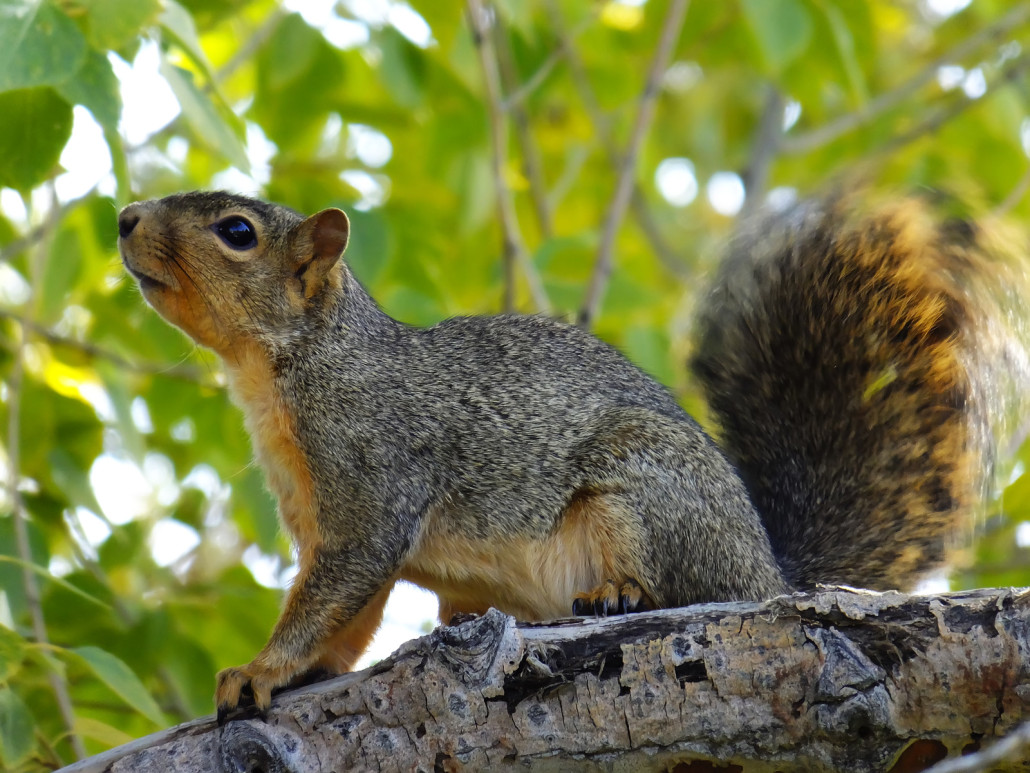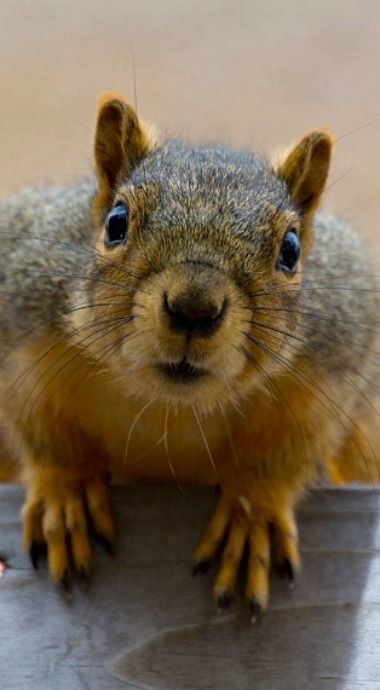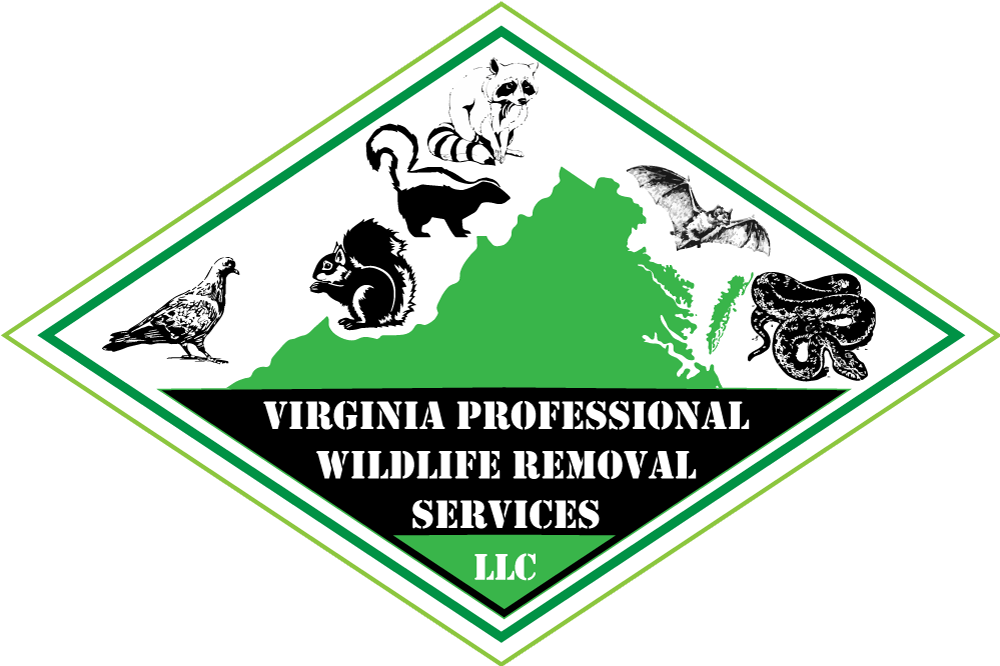
How To Get Rid Of Squirrels
How To Get Rid Of Squirrels In Virginia
Squirrel Removal and Control
(804) 729-0046 or toll-free at (888) 824-7383
Squirrel Removal, Squirrel Trapping & Squirrel Control in Virginia. Our Wildlife Control Technicians provide expert squirrel removal, squirrel trapping, squirrel control, squirrel capture, squirrel management and squirrel exclusion in the Henrico, Glen Allen, Richmond, Midlothian, Charlottesville and throughout other Virginia areas. If you have a squirrel living in your attic, walls, ceilings, eaves, vents, fascia, soffit or anywhere else in your home or business give us a call at (804) 729-0046 or toll-free at (888) 824-7383 to schedule our squirrel removal services.
Do You Need Squirrel Removal Services in Richmond Or Charlottesville VA?
The Gray Squirrel (Sciurus carolinensis) often causes problems in Richmond, Virginia when it decides to take up residence inside of your attic. Once in your Richmond attic they can be extremely destructive – tearing up and soiling insulation, gnawing on wires and structural materials, and generally making a lot of disruptive noises.
Richmond Squirrels are diurnal, meaning they are active twice a day, generally in the morning and evening. They mate two to three times a year and have litters of 3-5 young per litter.
The Southern Flying Squirrel (Glaucomys volans) can also be a problem in the attics of Richmond and Charlottesville VA homeowners for many of the same reasons as the Gray Squirrel.
Virginia Professional Wildlife Removal Services performs many squirrel evictions every year in Richmond, Virginia. We are not only knowledgeable in eviction techniques, but also in exclusion techniques to prevent your problem from recurring in your Richmond home or business.
Squirrel Removal Cost
We are often asked by callers to provide squirrel removal costs. While we don’t provide free squirrel removal, you’ll find that our squirrel removal prices and services usually beat our competitors prices hands down.
How To Get Rid Of Squirrels
There are many ways to get rid of squirrels. Some humane, some not so humane. We ALWAYS recommend a humane approach to wildlife removal. We know how to get rid of squirrels that have gotten into your attic or other places on your home. Once we humanely get rid of them we can repair the damaged areas to keep other critters out.
The squirrel removal or squirrel control process involves the following:
- Identifying the squirrel entry and exit points as well as the species of squirrel you are dealing with. There is some difference to how you approach each job based on species.
- Purchase a good quality professional grade squirrel trap. There are many types including cage traps, body grip traps, cable restraints, etc.
- Use a commercial grade squirrel bait. Peanut butter works sometimes, but is not the best bait.
- Place the trap at our very near their entry point or area of greatest activity.
- Once you catch the squirrel(s) you should determine the sex of each one. If you catch a female you need to determine if she is lactating and has young. This is where the squirrel removal process gets really complicated for the lay person. Orphaned baby squirrels will often die and create quite a mess, particularly if you can’t locate and remove them.
- You need to think about what you’re going to do with any squirrels that you trap and remove. Most states prohibit the transportation and relocation of wildlife, and the survival rate for translocated animals is almost nil.
- Getting rid of squirrels also involves locating nesting and bedding areas, and identify squirrel damage such as chewed electrical wires. Make sure that you’re up to the task. They are as important as catching the squirrel.
- If all else fails you should definite consider hiring a local squirrel removal company that is licensed and insured and will do the job right.
Description of Squirrel Damage in Virginia
Squirrels in our area may occasionally damage forest trees by chewing bark from branches and trunks.
Squirrels in Richmond may eat cones and nip twigs to the extent that they interfere with natural reseeding of important forest trees. This is a particular problem in Ponderosa pine forests where the pine squirrel species may remove 60% to 80% of the cones in poor to fair seed years. In forest seed orchards, such squirrel damage interferes with commercial seed production.
In nut orchards, squirrels can severely curtail production by eating nuts prematurely and by carrying off mature nuts. In New England fruit orchards, the pine squirrel may eat ovaries of cherry blossoms and destroy ripe pears.
In Richmond, VA residential areas, squirrels sometimes travel powerlines and short out transformers. They gnaw on wires, enter buildings, and build nests in attics. Richmond Squirrels may damage siding, insulation, or household contents when they take up residence in homes or other buildings. They frequently chew holes through pipelines used in maple syrup production. Squirrels are also notorious for chewing and digging holes in ceilings and damaging sheet rock.
Squirrels in Richmond occasionally damage lawns by burying or searching for and digging up nuts. They will chew bark and clip twigs on ornamental trees or shrubbery planted in yards. Often squirrels take food at feeders intended for birds. Sometimes they chew to enlarge openings of bird houses and then enter to eat nestling songbirds. Richmond Flying squirrels are small enough to enter most bird houses and are especially likely to eat nesting birds.
In gardens, a squirrel may eat planted seeds, mature fruits, or grains such as corn. (Source: Prevention and Control of Wildlife Damage, 1994)
Squirrels Damaging Vehicles – Chewing Wires & Other Components
There are two main reasons why gray squirrels chew on vehicle wires, and understanding them can help you deter them:
- Tooth Maintenance: Rodents, including squirrels, have continuously growing teeth. To keep them worn down and prevent overgrown, painful teeth, they instinctively gnaw on things – and car wires can unfortunately be prime targets.
- Shelter and Nesting: The warm engine compartment of a car can be attractive to squirrels in colder weather, offering a potential nesting spot. While exploring, they might chew on nearby wires out of curiosity or for nesting material.
Here are some ways to prevent squirrels from chewing on your car’s wires:
Prevention:
- Park indoors or in a garage whenever possible. This physically blocks access to your car.
- Keep your car clean and free of food debris. Squirrels are drawn to food sources, and crumbs or spills could attract them under the hood.
- Use deterrent sprays or pouches. Look for sprays or pouches containing natural repellents like peppermint oil or cayenne pepper. Reapply regularly according to the product instructions.
- Seal potential entry points. Inspect the underside of your car and engine compartment for any gaps or holes where squirrels could enter. Seal them with metal mesh or caulking.
Deterrence:
- Motion-activated lights or sprinklers. The sudden movement or water spray can startle squirrels and deter them from returning.
- Mothballs or dryer sheets. The strong scent may repel squirrels but be aware that this method has mixed effectiveness and can be harmful if ingested by pets or wildlife.
Professional solutions:
- Ultrasonic repellers. These devices emit high-frequency sounds that are unpleasant to rodents but inaudible to humans. However, their effectiveness can vary.
- Consult our pest control professionals. We can offer targeted solutions and traps specific to your situation.
Important note: Never use harmful poisons, as they are illegal to use for squirrels and may also harm other animals or even children.
By understanding why squirrels chew wires and taking preventative measures, you can avoid costly repairs and protect these furry neighbors.
People Want to Know How to Get Rid of Squirrels
When potential customers call us they often have a lot of questions about the squirrel removal process. Some of the questions we get include:
- How to get rid of squirrels?
- How to get rid of squirrels in your attic?
- How to get squirrels out of your attic?
- How to keep squirrels out of attic?
- How to remove squirrels from attic?
- How to get rid of squirrels in the walls?
- How to get rid of ground squirrels?
- How to kill squirrels?
- How to keep squirrels away?
- When do squirrels have babies?
- What does squirrel poop look like?
Richmond Squirrel Problems
- Squirrel in attic
- Squirrel digging holes in the side of your house
- Squirrel tearing up attic insulation
- Squirrel poop in attic
- Squirrel babies in attic
- Squirrel chewing electrical wires
- Squirrel digging holes in your screen
Squirrel Health Concerns in Virginia
Gray squirrels in Virginia are subject to a host of parasites and diseases. Botfly larvae can cause enormous cysts on a squirrel before the larva emerges to pupate and metamorphose into a fly. Mange can leave a squirrel with patches of raw furless skin. Ticks, fleas, lice, and worms also afflict Richmond gray squirrels. Another peculiar ailment that is found in gray squirrels is squirrel pox or fibromatosis. This disease is caused by a virus and results in multiple large skin tumors which may appear anywhere on the squirrel’s body. Normally, this disease will run its course and the tumors will disappear unless secondary skin infections occur. If the tumors occur around the eyes or mouth, the squirrel may be unable to see or feed and may succumb due to starvation. Squirrel droppings, like pretty much any wildlife dropping, are associated with Leptospirosis and Salmonella. (Source: www.newyorkwild.org)
Squirrels As a Nuisance Animal in Virginia
You can see tree squirrels running to and from buildings and homes, running across power lines and on top of fences. Squirrels are the number one nuisance animal in Virginia. Some of the more common types of squirrels that are found in Virginia are the gray squirrels. This type of squirrel can and will cause damage to your home if they invade your attic. Some of the damage that these squirrels do to an attic and other parts of a home include, insulation damage, sheetrock damage, structural support damage, damage to louver vents, damage to gable vents and damage to attic ventilation vents. They also chew electrical wires, air-conditioner ductwork and dig holes in your ceiling. All these squirrel problems can be prevented by hiring a professional squirrel removal company in Virginia.
Quick and efficient removal of the squirrels is necessary in order for you to prevent long-term damage being done to your home. When hiring a squirrel removal professional in Virginia verify they have the appropriate Virginia animal removal license and animal removal insurance issued by a reputable insurance company. Don’t let squirrels take over your Virginia home. Call us immediately when you realize you have squirrels in your attic. Squirrels in the attic of a home is our specialty, and we use the most humane squirrel traps on the market to solve your squirrel problem. Do you have a problem with flying squirrels in your attic? We perform flying squirrel removal services too.
Our Service Areas for Squirrel Removal Services in Virginia
Virginia Professional Wildlife Removal Services is a full-service animal wildlife trapping, animal removal, animal capture, pest control, animal control, and wildlife management company serving counties, cities, towns and communities throughout Virginia. We provide residential, commercial, and industrial animal removal, animal control, animal trapping, animal capture, pest control and wildlife management services in Afton, Albemarle County, Alexandria, Amelia County, Annandale, Arlington, Ashburn, Ashland, Barboursville, Bellwood, Belmont, Bensley, Bermuda Hundred, Bon Air, Boyd Tavern, Brandermill, Bumpass, Burke, Central VA, Centreville, Chamberlain, Charlottesville, Chesapeake, Chester, Chesterfield County, Colonial Heights, Crozet, Cuckoo, CVille, Dale City, Doswell, Dumbarton, Earlysville, East Highland Park, Enon, Ettrick, Fairfax, Fair Oaks, Ferncliff, Fluvanna County, Fredericksburg, Genito, Glen Allen, Glenora, Goochland County, Gordonsville, Gum Spring, Hadensville, Hampton, Hampton Park, Hanover County, Harrisonburg, Harrogate, Hening, Henrico County, Highland Springs, Hopewell, Innsbrook, Jefferson Davis, Kents Store, Keswick, Lake Anna, Lake Monticello, Lake Ridge, Lakeside, Laurel, Leesburg, Lewiston, Lignum, Locust Grove, Louisa County, Maidens, Manakin, Manakin-Sabot, Manassas, Manchester, McLean, Montrose, Motoaca, Meadowbrook, Mechanicsville, Midlothian, Mineral, Moseley, Newport News, Norfolk, North Courthouse, North Garden, Oilville, Orange County, Palmyra, Pantops, Petersburg, Portsmouth, Powhatan County, Reams, Reston, Richmond, Richmond County, Robious, Rockville, Rockwood, RVA, Salisbury, Sandston, Sandy Hook, Scottsville, Shannon Hill, Short Pump, South Rockwood, Spring Run, Staunton, Stoney Point, Suffolk, Tidewater, Troy, Tuckahoe, Va, Varina, Virginia, Virginia Beach, Waynesboro, Williamsburg, Winchester, Winterpock, Woodlake, Wyndham, and the surrounding areas of Virginia.
Please Complete Our Simple Contact Form Below:
 Contact Us at (804) 729-0046 or toll-free at (888) 824-7383 for Virginia animal trapping, animal control, wildlife removal, pest control, animal capture, animal exclusion or wildlife management in VA involving:
Contact Us at (804) 729-0046 or toll-free at (888) 824-7383 for Virginia animal trapping, animal control, wildlife removal, pest control, animal capture, animal exclusion or wildlife management in VA involving:
- Bats (Little Brown Bat, Big Brown Bat, Others)
- Beavers
- Bees
- Birds
- Bobcats
- Canada Geese
- Chipmunks
- Copperhead Snakes
- Cottonmouth Snakes
- Coyotes
- Dead Animal Removal
- Deer
- European Starlings
- Flying Squirrels
- Foxes (Red and Gray)
- Groundhogs
- Mice
- Moles
- Muskrats
- Opossums
- Otters
- Pigeons
- Possums
- Raccoons
- Rats
- Rattlesnakes
- Skunks
- Snakes
- Southern Flying Squirrels
- Squirrels
- Stinging Insects
- Voles
- Woodchucks
For additional information on our squirrel removal services – Click Here
We are considered one of the best local squirrel removal and control companies. Contact us at (804) 729-0046 or toll-free at (888) 824-7383.

